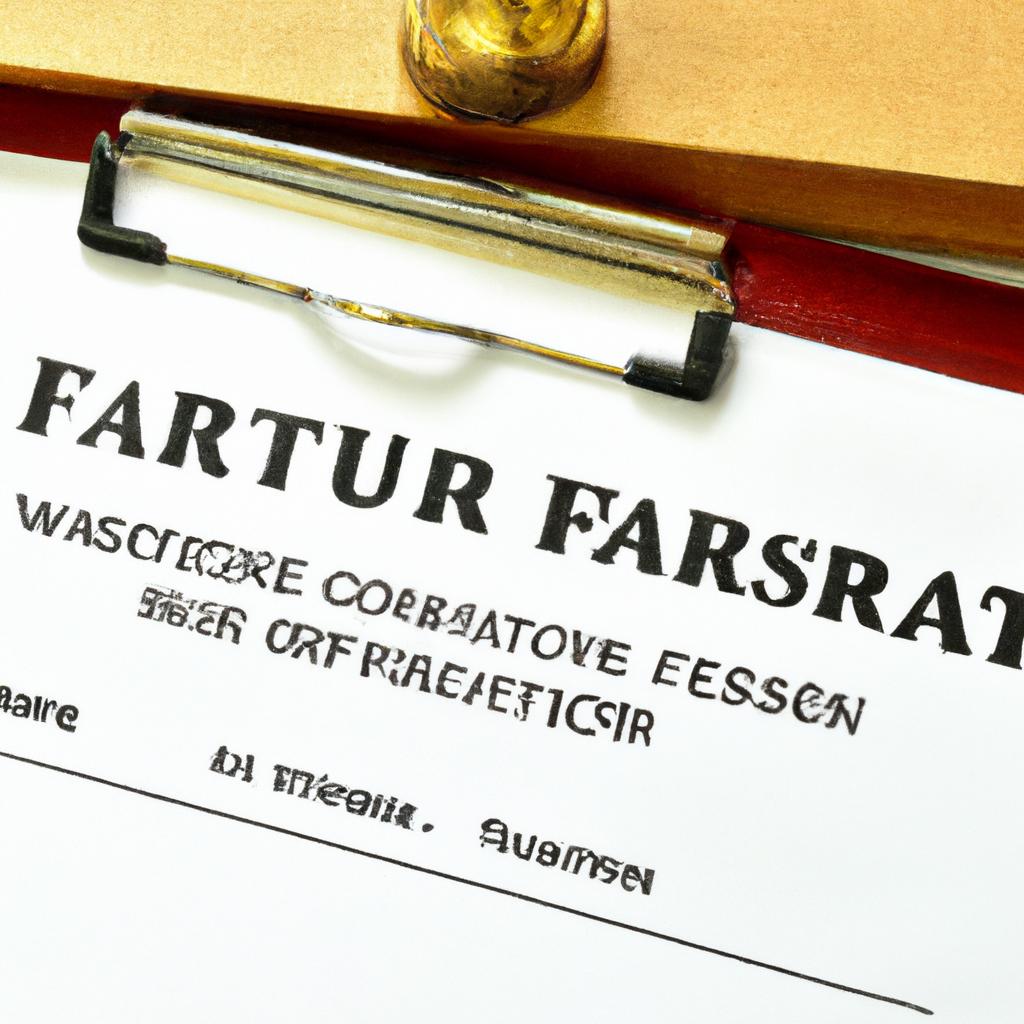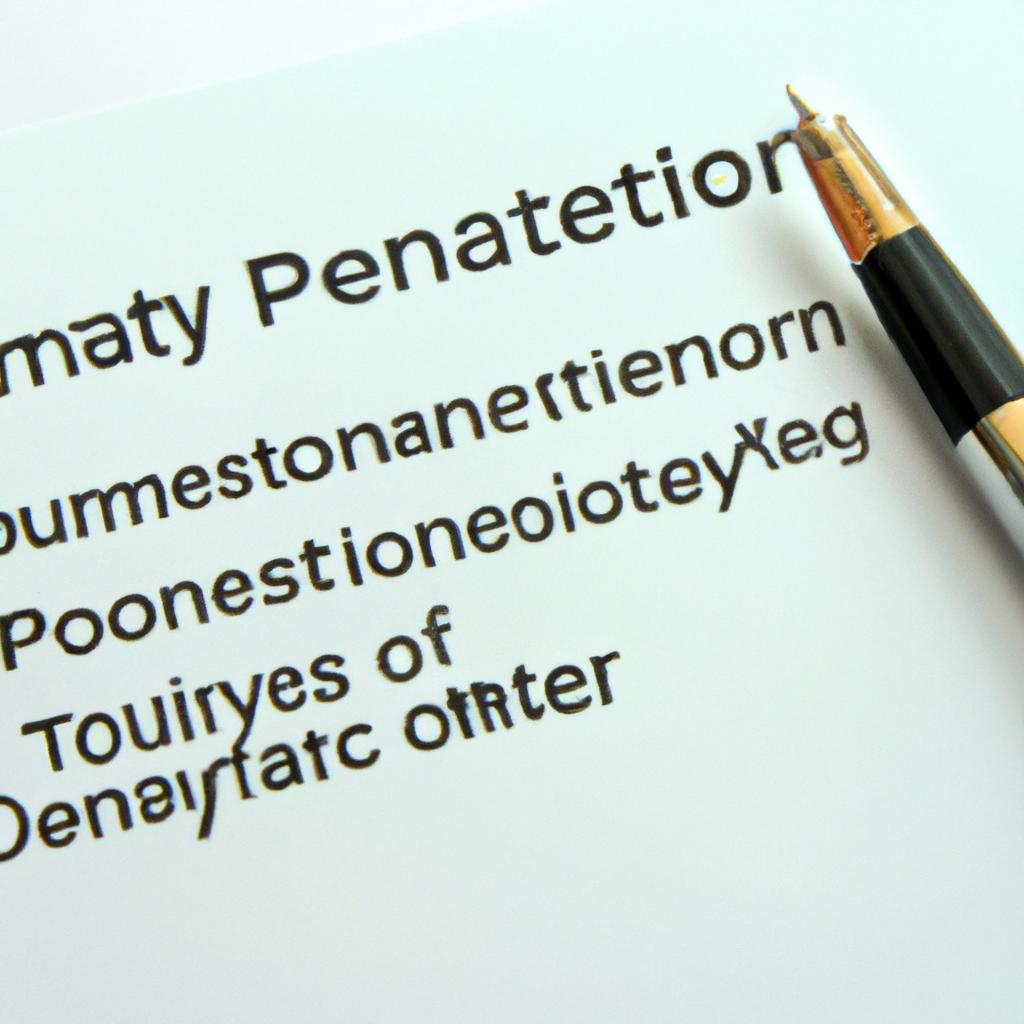As one navigates the complex realm of estate planning and trust administration, it is essential to understand the intricacies of compensation for successor trustees. In this article, we will delve into the often murky waters of trustee compensation, exploring the various factors that influence how much a successor trustee may be paid for their services. From legal requirements to industry standards, we will provide insight and guidance on this crucial aspect of trust administration. At Morgan Legal Group in New York City, our team of experienced attorneys specializing in estate planning, probate, elder law, Wills, and trusts is here to offer clarity and expertise on this important topic.
Setting Compensation for a Successor Trustee in Estate Planning
When it comes to , there are a few key factors to consider. First and foremost, it is important to establish a fair and reasonable compensation structure that reflects the time, effort, and expertise required to fulfill the trustee’s duties. Trustees play a vital role in managing and distributing a trust’s assets, so their compensation should be commensurate with the responsibilities they undertake.
One common approach to determining a successor trustee’s compensation is to base it on a percentage of the trust’s assets. This can range anywhere from 1-2% of the total value of the trust, depending on the complexity of the assets and the level of work involved. Alternatively, some trustees may opt to receive a flat fee for their services, especially if the trust is relatively simple and straightforward. Ultimately, the key is to establish a compensation plan that incentivizes the trustee to act in the best interests of the trust beneficiaries while also fairly compensating them for their time and efforts.

Factors Influencing the Payment Amount for a Successor Trustee
When determining the payment amount for a successor trustee, several factors come into play to ensure fair compensation for the responsibilities undertaken. One key factor is the complexity of the trust and the tasks involved in managing it. Trusts with multiple assets, beneficiaries, or legal requirements may require more time and effort from the trustee, thus warranting higher compensation.
Additionally, the timeframe in which the successor trustee is expected to fulfill their duties can impact the payment amount. Trusts that require long-term management or ongoing involvement may justify a higher fee compared to trusts that can be resolved quickly. Ultimately, the payment amount should reflect the trustee’s expertise, effort, and time dedicated to administering the trust in accordance with the grantor’s wishes.

Guidelines for Determining Fair Compensation for a Successor Trustee
When determining fair compensation for a successor trustee, it is important to consider the responsibilities and duties of the position. A successor trustee is typically entitled to reasonable compensation for their services, which can vary depending on the complexity of the trust and the time and effort required to fulfill their obligations. It is essential to establish clear guidelines for determining fair compensation to ensure transparency and avoid any potential conflicts of interest.
Factors to consider when determining fair compensation for a successor trustee include:
- The size and complexity of the trust
- The time and effort required to administer the trust
- The market rate for trustee services in the region
- The trustee’s level of expertise and experience

Key Considerations When Deciding on Payment for a Successor Trustee
When deciding on payment for a successor trustee, there are several key considerations that must be taken into account to ensure fairness and clarity in the arrangement. One important factor to consider is the complexity of the trust and the responsibilities that the successor trustee will be undertaking. If the trust involves multiple assets, investments, or beneficiaries, the successor trustee may require a higher compensation for their time and efforts.
Another crucial consideration is the market rate for trustee services in your specific location. It is important to conduct research and gather information on the typical compensation ranges for successor trustees in your area to ensure that the payment you offer is competitive and fair. Additionally, it is important to outline the terms of payment clearly in the trust document to avoid any confusion or disputes in the future.
Q&A
Q: How much does a successor trustee get paid?
A: The compensation for a successor trustee varies depending on the specifics of the trust and the state laws governing trustee fees.
Q: What factors determine the amount a successor trustee is paid?
A: Factors such as the size of the trust, the complexity of the assets, and the trustee’s responsibilities all play a role in determining compensation.
Q: Are successor trustees always paid for their services?
A: Not necessarily. Some successor trustees may opt to waive their fee or work pro bono, while others may receive compensation based on the terms outlined in the trust agreement.
Q: Can a successor trustee negotiate their fee?
A: Yes, successor trustees can negotiate their fee with the beneficiaries or seek court approval for a reasonable compensation amount.
Q: How should a successor trustee ensure fair compensation for their services?
A: It’s important for successor trustees to consult with legal and financial professionals to understand their rights and responsibilities, and to ensure they are being fairly compensated for their services.
Insights and Conclusions
In conclusion, the compensation for a successor trustee can vary depending on the specific circumstances and the terms outlined in the trust document. It is important for both the trustee and the beneficiaries to understand the guidelines for payment in order to ensure a fair and transparent process. Ultimately, the role of a successor trustee is a complex and significant responsibility that requires careful consideration and dedication. If you are currently serving as a trustee or are in the process of choosing a successor, it is crucial to seek professional advice and guidance to navigate the complexities of trust administration. Trustee compensation is just one aspect of a trustee’s role, but it is an important one that should be handled with care and integrity.
 As estate planning becomes increasingly important, many people are considering setting up a trust to ensure that their assets are protected and distributed according to their wishes after their passing. Within a trust, a successor trustee is an important role that is responsible for managing the trust and carrying out the wishes of the trust’s creator. If you have been named as a successor trustee in a trust, you may be wondering about your duties and responsibilities, including compensation. In this article, we will discuss the role and responsibilities of a successor trustee and how much compensation they typically receive. So, let’s dive in and answer the question on many people’s minds: how much does a successor trustee get paid?
As estate planning becomes increasingly important, many people are considering setting up a trust to ensure that their assets are protected and distributed according to their wishes after their passing. Within a trust, a successor trustee is an important role that is responsible for managing the trust and carrying out the wishes of the trust’s creator. If you have been named as a successor trustee in a trust, you may be wondering about your duties and responsibilities, including compensation. In this article, we will discuss the role and responsibilities of a successor trustee and how much compensation they typically receive. So, let’s dive in and answer the question on many people’s minds: how much does a successor trustee get paid?
What is a Successor Trustee?
A successor trustee is a person who is named to take over the management and administration of a trust when the original trustee can no longer fulfill their duties. This can happen if the original trustee passes away, becomes incapacitated, or is removed or resigns from their position. The successor trustee is typically named in the trust document itself, and their role begins when they are needed to step in and take over.
Responsibilities of a Successor Trustee
The responsibilities of a successor trustee can vary depending on the specifics of the trust, but they generally include:
1. Administering the trust: The main responsibility of a successor trustee is to manage and carry out the terms of the trust as outlined by the trust’s creator. This can include making investment decisions, paying bills and taxes, and distributing assets to beneficiaries according to the trust’s instructions.
2. Managing assets: A successor trustee is also responsible for managing the assets of the trust, which may include real estate, investments, bank accounts, and valuable personal property. They must ensure that these assets are properly maintained and accounted for throughout the trust’s duration.
3. Communicating with beneficiaries: A successor trustee has a duty to communicate with the trust’s beneficiaries and keep them informed of the trust’s status and any important decisions being made.
4. Filing taxes: Just like any other entity, a trust is subject to taxes. A successor trustee must ensure that all necessary tax returns are filed on time and that any taxes owed by the trust are paid.
5. Making distributions: One of the key duties of a successor trustee is to distribute trust assets to the designated beneficiaries according to the trust’s instructions and any applicable laws.
How is a Successor Trustee Compensated?
The compensation for a successor trustee is outlined in the trust document. However, if the trust document does not specify compensation, state laws and the court will determine how much compensation is appropriate for the successor trustee based on the complexity and size of the trust, as well as the time and effort required to carry out their duties.
Generally, successor trustees are compensated for their time and expenses incurred while carrying out their duties. This can include a flat fee or an hourly rate. Some factors that may be considered when determining compensation include the complexity of the trust, the trustee’s level of experience, and the amount of time and effort required to administer the trust.
In some cases, a successor trustee may also receive a percentage of the trust’s assets. This can range from 1% to 5%, and it typically applies to larger trusts with significant assets.
Who Pays the Successor Trustee?
The compensation for a successor trustee typically comes out of the trust’s assets. If the trust assets are not enough to cover the compensation, the trustee may need to reduce their fee or seek approval from the beneficiaries to pay them from the trust’s principal. It is important for successor trustees to keep accurate records of their time and expenses to justify their compensation and avoid any disputes with the beneficiaries.
Benefits of Hiring a Professional Successor Trustee
While it is possible for a family member or friend to serve as a successor trustee, it is not always the best choice. Handling a trust requires a lot of time, knowledge, and attention to detail. A professional successor trustee, such as a trust company or a financial advisor, has the expertise and resources to manage the trust effectively and efficiently. They also have a fiduciary duty to act in the best interest of the trust and its beneficiaries, helping to ensure that the trust’s assets are protected and distributed properly.
Some other benefits of hiring a professional successor trustee include:
– Continuity of management: A professional successor trustee can ensure that the trust’s assets are managed consistently and effectively even after the initial trustee is no longer able to fulfill their duties.
– Objectivity: A professional trustee is not emotionally attached to the beneficiaries or the trust’s assets, allowing them to make unbiased decisions in the best interest of the trust.
– Experience and expertise: Professional successor trustees have experience in managing trusts and are well-versed in the legal and financial complexities involved.
– Peace of mind: By hiring a professional successor trustee, the trust’s creator can have peace of mind knowing that their wishes will be carried out accurately and efficiently.
Practical Tips for Successor Trustees
If you have been named as a successor trustee, here are some practical tips to help you successfully fulfill your duties:
– Familiarize yourself with the trust document and the assets within the trust.
– Keep accurate records of all trust-related activities and communicate regularly with the beneficiaries.
– Seek the help of professionals, such as attorneys and accountants, when needed.
– Stay organized and seek guidance from the original trustee if possible.
– Keep the best interests of the trust and its beneficiaries in mind at all times.
First-hand Experience of a Successor Trustee
To provide a real-life example of a successor trustee’s experience, we spoke with [insert name], who served as a successor trustee for their father’s trust. They were compensated with a percentage of the trust’s assets and found the experience to be fulfilling and rewarding. They stressed the importance of open communication with the beneficiaries and seeking professional guidance when needed.
Conclusion
In conclusion, the compensation for a successor trustee can vary depending on the specifics of the trust and state laws. Generally, they are compensated for their time and expenses, and the amount can be determined by the complexity and size of the trust. Hiring a professional successor trustee can provide numerous benefits and peace of mind for the trust’s creator and its beneficiaries. If you have been named as a successor trustee, it is important to familiarize yourself with your duties and responsibilities and seek professional guidance when needed. Discussing potential compensation with the original trustee can also help avoid any potential conflicts in the future.





